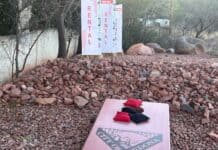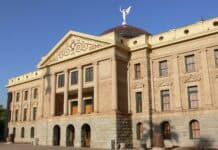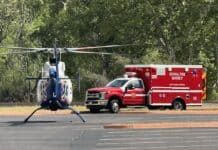The Board of Directors for the Village of Oakcreek Assocation, a homeowner’s association in VOC which includes 2,400 residential and commercial lots and the championship Oakcreek Country Club golf course, has proposed raising annual dues for members from $180 to $500 per lot.
The proposal comes in response to a recent capital reserve study finding VOCA’s financial reserves inadequate for maintaining the association’s physical assets, including the Oakcreek Country Club’s golf course. According to a presentation at a Sept. 5 member forum, VOCA currently has $1.1 million in reserves, or 26.8% of the $4.2 million the study estimated that VOCA will need for maintenance and replacement of assets in the future. At the current annual assessment of $180 for home and business owners, Board Members believe that VOCA’s capital reserves could be depleted by 2023. The current annual assessment rate has remained essentially the same since 1994.
But VOCA’s Board is in a difficult position as it seeks to raise funds because association bylaws require that VOCA members approve any increase in assessments by majority vote, including one-time special assessments. State law allows HOA’s to increase annual fees by as much as 20% without approval from members, but VOCA bylaws override this regulation, requiring member approval for even modest increases within the 20% range.
At a recent member forum, VOCA members expressed concern about the size of the proposed increase in annual fees and interest in what percentage of capital funds raised by the increase would go to certain association assets Many questions from VOCA members in attendance were aimed specifically at clarifying the golf course’s impact on VOCA’s finances.
One VOCA resident, Mike Lazaro, expressed concern that a large share of the funds from increased annual dues would be used to support the Oakcreek Country Club.
“So we are in fact paying for the golf course,” he said to Board members after a line of questioning about capital reserve spending, “but we can’t use it in the evenings and stuff.”
Another VOCA resident in attendance, Nancy Maple, requested to see a break¬down of projected expenditures by asset, which would clarify how much of the funds raised are expected to go to the golf course’s maintenance expenses versus other assets, like the community park.
According to Board members, golf course revenues generated from golf memberships, outside play, pro shop sales and cart rentals cover the course’s
operating expenses and often generate surpluses, which are put into VOCA’s capital reserve fund. However, maintenance and replacement of the course’s capital assets, like irrigation systems and lawn mowers, are not calculated as part as the course’s operating costs, and these expenditures come out of VOCA’s capital reserve fund. In the recent capital reserve study, many significant projected expenditures were connected with the Oakcreek Country Club golf course, including $599,000 for refurbish¬ment of bunkers, which the study says are needed now. On social media, large golf expenses like these have raised some ire.
When the Sept. 5 member forum adjourned, the Board of Directors assured the room that they would have more data on the breakdown of association assets and liabilities among VOCA’s various properties, including Oakcreek Country Club, at a follow-up forum on Sept. 20.






















